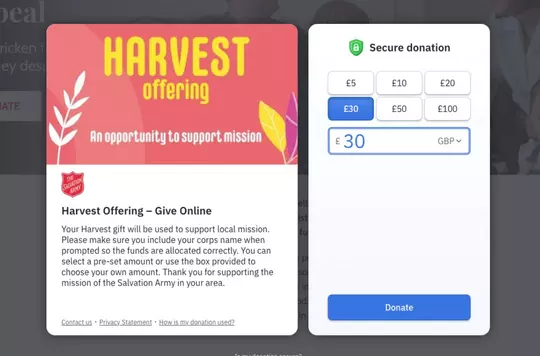24 October 2022
John 8: the truth will set you free
Bible study by Major Andrew Bale
Major Andrew Bale reminds us that freedom is found in knowing Jesus.
Key text
John 8 is one of my favourite chapters in the Bible but it is difficult, maybe even dangerous, to look at any verses in this passage in isolation from the rest of the chapter. Each section within deals with the identity and authority of Christ and how they relate to sin, forgiveness, judgement and freedom.
At the start of the chapter Jesus is presented with a woman caught in adultery. In his reaction we see one of the most amazing examples of grace in the Gospels. Although Jesus acknowledges her sin, he refuses to condemn her. Instead he uses the encounter to challenge others on their perceptions of righteousness.
In a conversation about the validity of his personal testimony – much to the horror of the Pharisees – Jesus claims that the Father himself is the source of his authority (see vv12–19).
Jesus talks about judgement and, albeit in a vague way, begins to refer to his own role in the provision of salvation (see vv21–30). Once more, he links his identity and authority directly to the Father – his Father.
In verses 48 to 59, Jesus strengthens this claim to such a degree that he ends up in the same danger as the adulterous woman – the Pharisees pick up rocks to stone him.
In verses 31 to 47, Jesus gets to the very heart of what it means to be saved, happy and free.
The Pharisees believed that obeying the Law led to righteousness – and by the ‘Law’ they meant their own interpretation and understanding of the commandments.
At the time Jesus lived, the Law had become a systematic tool used by the legal and priestly classes to control and oppress the poor. This legalistic system was also used for profit. The main reason Jesus found himself in conflict with the religious authorities – and ended up being crucified as a blasphemer – was because he openly challenged this status quo.
It is perhaps too easy for us to look at the Pharisees in this passage and side with Jesus, retrospectively condemning them for their short-sightedness and judgemental hypocrisy, but these verses apply to us too. Sometimes, I wonder whether we are a little like the Pharisees, using the teachings of the New Testament to control and oppress others, rather than recognising that true righteousness and freedom are not found in mere religious observance or moral performance but only in knowing Jesus.
Pause and reflect
- Within our fellowships, can we identify situations where our response is more like the Pharisees than we would like to admit?
- What do we believe sets us free?
- To what extent do we refuse to condemn people who come into our place of worship?
- How do we welcome people and, in a spirit of love, introduce them to the Father?
- What steps can we take to be more like Jesus in the way we engage with people?
Sometimes we are tempted to look to our own spiritual heritage and see ourselves as being a little bit better than the people we are called to love and serve. Don’t forget, if Jesus wanted to, he could make Salvationists out of the rocks that we are sometimes tempted to throw at others (see Matthew 3:9).
The only thing that sets us free is the Son and his truth, but what is that truth that sets us free?
Pause and reflect
- What is the hallmark of Christianity?
- What do we see in the character of Jesus that we should also see in our actions and interactions?
- When Jesus met people for the first time, what were his priorities? What are ours?
In the first of his letters, John reminds us: ‘God is love, and all who live in love live in God, and God lives in them’ (4:16). In verse 38 of our study passage, Jesus says to the Pharisees: ‘I am telling you what I have seen in the Father’s presence.’
Christ’s identity and authority came from his connection with the Father. Similarly, our identity and authority are born out of our connection with the Son. Sometimes we need to remember that the Father sent his Son into the world not to tell us off but to save us.
Understanding that truth will set us free indeed.
Bible study by

Major Andrew Bale
Corps Officer, Norwich Citadel
Discover more

Captain Andrew Manley reminds us that we only will be satisfied when we discover, believe and follow Jesus.

Principal Lieut-Colonel Judith Payne continues her series sharing updates about William Booth College.

As corps celebrate Harvest, Hannah Kingston reminds Salvationists that they can give their offering online.

